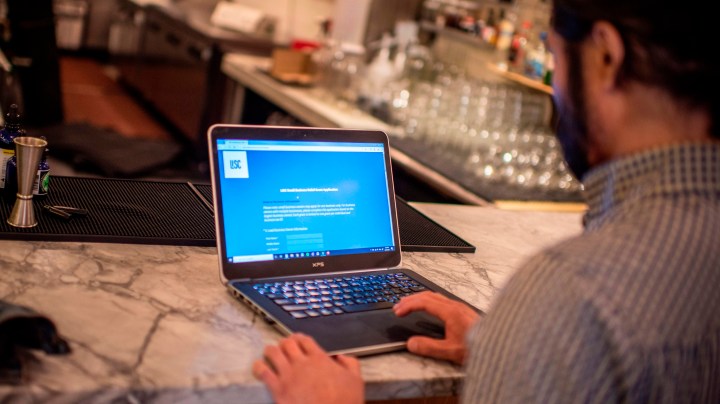
The clock’s striking midnight on some federal pandemic relief loans for small businesses
The clock’s striking midnight on some federal pandemic relief loans for small businesses

Early in the pandemic, the government rolled out a couple of big loan programs aimed at helping small businesses survive. There was the Paycheck Protection Program, which offered loans that were almost entirely forgiven by design. There was also the Economic Injury Disaster Loan program, which offered 30-year loans with a fixed interest rate of 3.75%.
Unlike PPP loans, EIDL loans are not forgiven, so businesses have to repay them. The Small Business Administration let recipients defer payments for up to two-and-a-half years, which means this year, payments are starting to come due.
One of those EIDL recipients is VetPowered, a manufacturing company with a workforce of military veterans. It makes custom metal components for the private sector and the Defense Department.
At its facility in San Diego, a programmer and machinist tested the alignment of a milling machine, which sheared slices off an aluminum block. The part would eventually become the hand of a robotic arm.
“You can make almost any product that you’d like on this machine,” said Hernán Luis y Prado, VetPowered’s Founder and CEO. “What it does is it takes a block of material, and then it removes all the excess material. Almost like Michelangelo, right? The part’s in there, you just have to chip away the unneeded parts.”
VetPowered has the machine, along with several others, thanks to its EIDL loan. The company was planning to build this facility before the pandemic, and when COVID hit, the EIDL money allowed Luis y Prado to go ahead with the expansion while keeping his staff employed, at a time when lending had dried up completely.
“There was nothing in sight,” Luis y Prado said. “Banks didn’t want to lend, you didn’t have the reserves, it was a really, really hard time. Had it not been for the EIDL loans, I think we would have been doomed.”
Instead, after a year-and-a-half, VetPowered had paid back its EIDL loan. Luis y Prado turned around and took out an even bigger commercial loan.
“What we really needed was to get more equipment, and we needed to have people on site to train on that equipment,” Luis y Prado said.
The Small Business Administration made about four million EIDL loans. A lot of them are still outstanding.
“When you look at debt, it’s important to look at the lens of good debt, versus bad debt,” said Madeline Reeves, who runs a marketing and consulting firm called Fearless Foundry. “And to me, this is good debt.”
Reeves said her business grew during the pandemic, and her EIDL loan helped her expand her staff. She’ll have to start making payments this year, but she said she’s not paying that much in interest compared to the kind of loans she could get today.
“I see things out there with terms that are 20% over 5 years,” Reeves said. “And so for me, it’s built into our budget, and we have the capacity to pay it off over time.”
But some businesses are struggling to find that capacity.
Daniel Jacobs owns a restaurant in Milwaukee called DanDan. He’s been paying back his loan since December to the tune of almost $4,000 a month.
“I mean, that’s a whole employee,” Jacobs said. “That’s a whole employee’s month’s salary.”
In order to afford the payments, Jacobs decided to open the restaurant one more day a week. Now, it’s open every day.
“We should be hiring an extra person to kind of help out with that, but instead, we’re going to have to stretch it out, and just do with what we have, because we can’t afford that extra person right now,” Jacobs said.
Jacobs said he’s confident he’ll be able to keep making the payments. But a lot of other businesses might not be, said Matt Hetrick, who runs the accounting firm Harmony Group.
“Businesses that really haven’t recovered the entirety of their business levels from pre-pandemic are now commencing payments on loans they took to get through a really, really uncertain time,” Hetrick said.
Hetrick said some businesses may have used the money to expand too quickly, for instance.
“I think the people who took it, saw money in their bank, and made decisions to run their businesses in ways that weren’t necessarily as profit-driven or as careful as they otherwise would have, are now in trouble,” Hetrick said.
As a result, Hetrick said businesses could end up defaulting on their loans this year. Some might go out of business entirely.
There’s a lot happening in the world. Through it all, Marketplace is here for you.
You rely on Marketplace to break down the world’s events and tell you how it affects you in a fact-based, approachable way. We rely on your financial support to keep making that possible.
Your donation today powers the independent journalism that you rely on. For just $5/month, you can help sustain Marketplace so we can keep reporting on the things that matter to you.

















